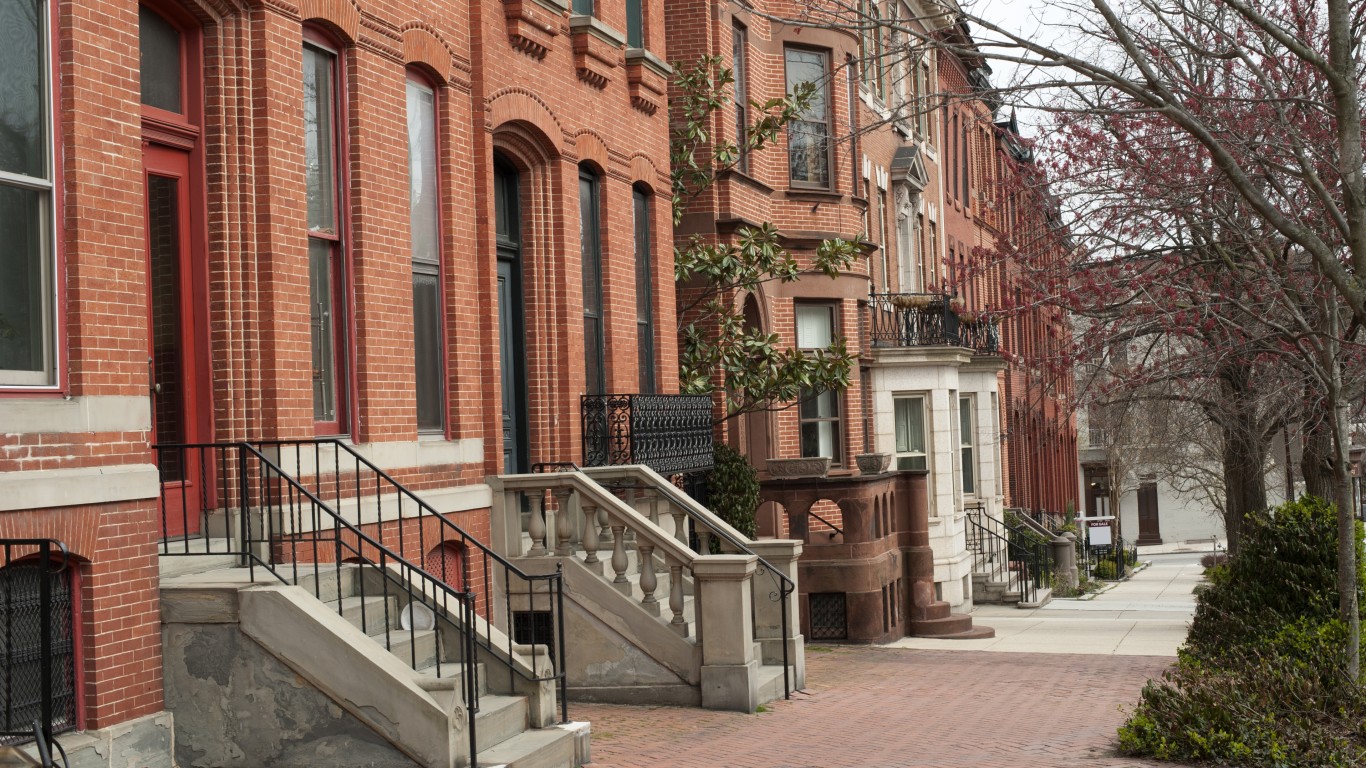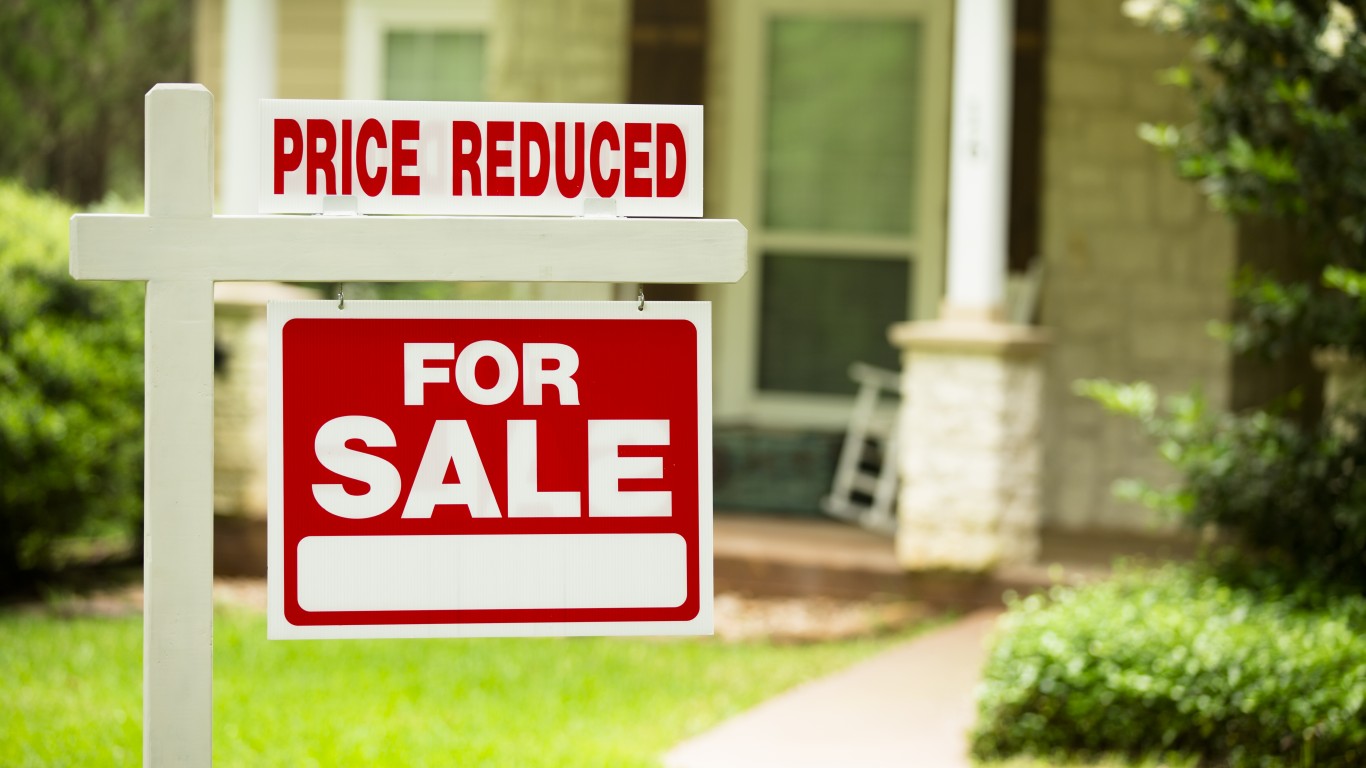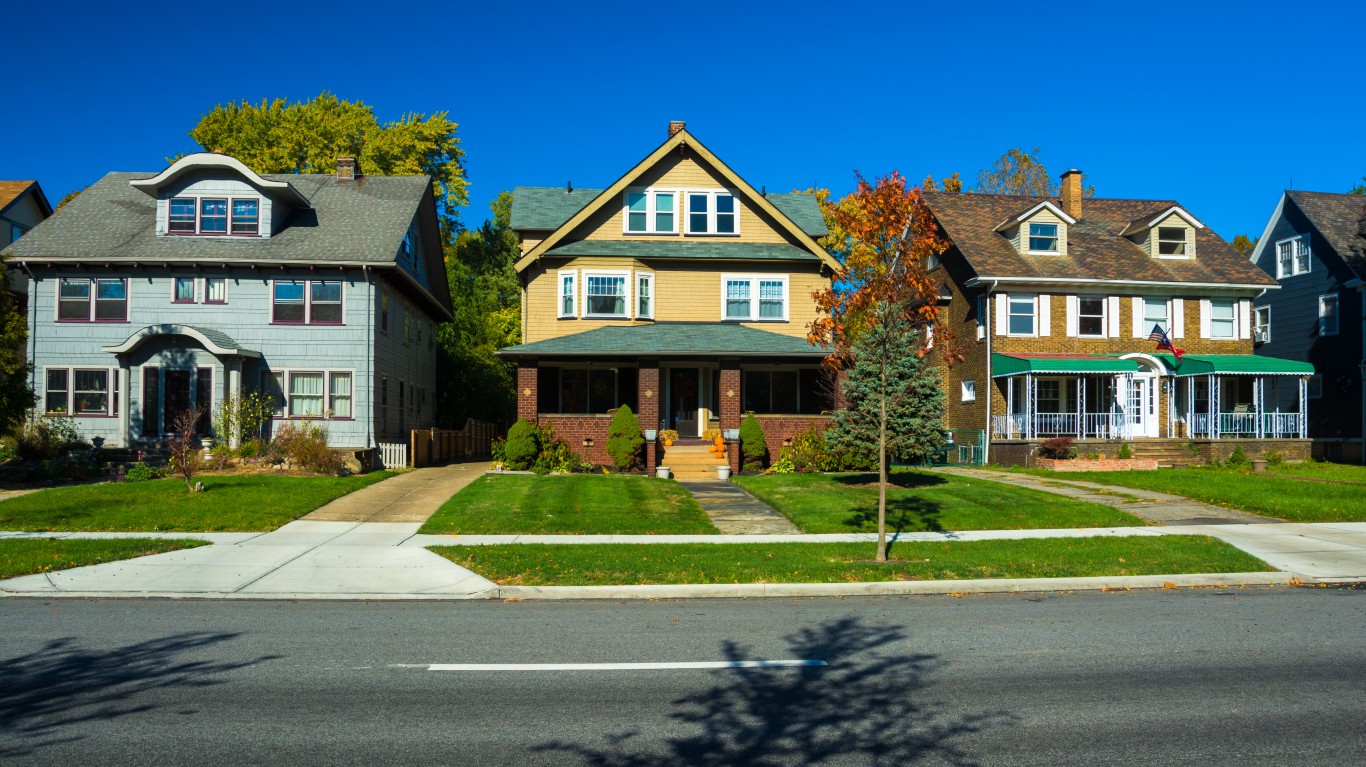
The COVID-19 pandemic had devastating economic consequences in the United States, grinding entire industries to a halt. One sector that did not suffer, however, was real estate. Driven by the pandemic, existing-home sales in 2020 hit their highest level in nearly a decade and a half.
The median home sale price in the United States was $265,000 in 2020 — $30,000 more than it was the previous year. Buying a house for a quarter of a million dollars, however, is not affordable for many Americans. Still, for those on a tight budget, there are many parts of the country where most homes are selling for far less.
Using median home sale prices provided by ATTOM Data Solutions, a real estate and property data company, 24/7 Wall St. identified the least expensive ZIP code in America. ZIP codes on the finalist list were ranked based on median sales price of condos and single-family homes in 2020. Only ZIP codes with at least 1,000 single-family homes and condos and where at least 500 of housing units were sold in 2020 were considered. Due to a lack of sufficient data, no postal codes in Maine, Massachusetts, New Hampshire, South Dakota, or Vermont were considered.
Many of the ZIP codes on the finalist list are in Midwestern Rust Belt cities that have suffered for decades from the decline of American manufacturing. These places tend to have long-term population decline, high unemployment, and low incomes — each of which can result in lower than average real estate prices.
Despite the low incomes in many of the postal codes on this finalist list, housing is still relatively affordable. In each of the 50 ZIP codes 24/7 Wall St considered, the ratio of home sale prices to incomes is more favorable than the comparable national ratio.
To determine the least expensive ZIP code, 24/7 Wall St. reviewed data provided by ATTOM Data Solutions, a real estate and property data provider. ZIP codes in the finalist list were ranked based on median sales price of condos and single-family homes in 2020. Only ZIP codes with at least 1,000 single-family homes and condos and where at least 500 of housing units were sold in 2020 were considered. The estimated market value is determined by ATTOM’s automated valuation model. Supplemental data on median household income, the share of households that are at least 50 years old, and unemployment are five-year estimates at the ZIP code level for 2015-2019 from the U.S. Census Bureau’s American Community Survey.
Due to a lack of sufficient data, no postal codes in Maine, Massachusetts, New Hampshire, South Dakota, or Vermont were not considered.
ZIP code 21223 is the least expensive in America. Here are some details:
> Location: Baltimore, Maryland
> Metro area: Baltimore-Columbia-Towson, MD
> Median home sales price: $26,000
> Median household income: $28,549
> Homes that are at least 50 years old: 86.1%
The 21223 ZIP code in Baltimore, located just west of the city’s Inner Harbor area, has the least expensive housing of any postal code with a sufficient sample size in the United States. Of the 556 homes that were bought and sold in the area in 2020, most went for $26,000 or less — below the local median household income of $28,549. For context, the median home sale price nationwide is 4.2 times higher than the national median household income of $62,843.
Home values are often an indication of what area residents can afford — and serious financial hardship is relatively common in the area. About 37% of residents live below the poverty line, and one in every five households earn $10,000 or less a year. Nationwide, 13.4% of the population live below the poverty line, and 6% of households earn less than $10,000 annually.
Both incomes and home values are also affected by the local job market to some degree. Over the last five years, 15.3% of area workers were unemployed, nearly three times the comparable 5.3% national jobless rate.
Click here to read These Are The Least Expensive Zip Codes In America
100 Million Americans Are Missing This Crucial Retirement Tool
The thought of burdening your family with a financial disaster is most Americans’ nightmare. However, recent studies show that over 100 million Americans still don’t have proper life insurance in the event they pass away.
Life insurance can bring peace of mind – ensuring your loved ones are safeguarded against unforeseen expenses and debts. With premiums often lower than expected and a variety of plans tailored to different life stages and health conditions, securing a policy is more accessible than ever.
A quick, no-obligation quote can provide valuable insight into what’s available and what might best suit your family’s needs. Life insurance is a simple step you can take today to help secure peace of mind for your loved ones tomorrow.
Click here to learn how to get a quote in just a few minutes.
Thank you for reading! Have some feedback for us?
Contact the 24/7 Wall St. editorial team.




